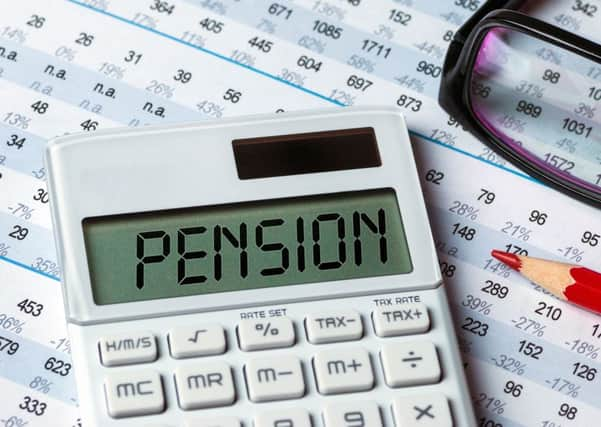James Roberts: We must defuse the timebomb of public pensions


The princely pension pots of the public sector have long been the stuff of legend. But while the police and others have seen attempts to have their pensions trimmed, these top pen-pushers have nothing to worry about.
We found that the 22 managers in charge of government departments have an average pension pot of almost £1m, with a whopping annual value of £50,909 each.
Advertisement
Hide AdAdvertisement
Hide AdIndeed, 14 of the departmental heads will receive a lump sum upon retirement, with an average price tag of £148,929 for the taxpayer.
Worst offender, Foreign Office chief mandarin Sir Simon McDonald, can look forward to a very cushy pot worth at least £1,858,000. With an approximated yearly sum of £82,500 – that’s about £1,587 each and every week.
Taxpayers around the country will have been rightly spluttering in their cornflakes.
In April last year, the average weekly wage across the UK was £569.
Advertisement
Hide AdAdvertisement
Hide AdIn Yorkshire, it was £520.80 – around £27,000 a year – and less than a third of Sir Simon’s annual retirement package.
The average weekly figure in Wales is even less, at £509 a week. Not that anyone has noticed, apparently – as the Director of the Wales Office will retire on an annual sum of £32,500, or £625 every week, having only joined the department in 2005.
These comparisons are important. Not just because they remind us that those who lead Whitehall departments have some of the best remuneration packages in the public sector.
But because they remind us that people in the private sector – the people earning £569 a week – not only have to pay for these pensions, but are unlikely to ever build a pension pot of that size.
Advertisement
Hide AdAdvertisement
Hide AdThe sad truth is that, while they have been accumulated over many years of service, the overall benefits for bureaucrats are significantly more generous than most in the private sector.
Recently, our research also showed that new civil servants are in a particularly favourable position compared to their private sector counterparts.
Based on the current scheme, the average pension at retirement will be almost three times greater than an equivalent in the private sector.
This is why the TaxPayers’ Alliance is committed to shining a light on these massive pensions inequalities.
Advertisement
Hide AdAdvertisement
Hide AdWe are sometimes asked, even in the letters pages of newspapers like The Yorkshire Post, why we are so interested in the excessive pay and inexcusable waste often found in our government departments and town halls.
Quite simply, it’s because groups like ours know that it’s ordinary taxpayers who will ultimately have to foot the bill.
Of course, that’s not to say we don’t need to attract the best into our public sector.
Regular promotion, salary rises and job security should be recompense enough for a life in the Civil Service.
Advertisement
Hide AdAdvertisement
Hide AdAt the very least, all new civil servants should join on the basis of a defined contribution pension, and be funded, rather than unfunded.
Unfunded pension schemes do not have assets set aside to cover the costs of employee benefits, and instead rely on ramping up future taxation or unexpected, swingeing cuts elsewhere.
We firmly believe that model simply isn’t affordable, sustainable or – at the end of the day – particularly fair.
But politicians seem to have their heads buried in the sand. Union barons fight tooth and nail to shut down the debate, happy for the private sector taxpayers of today and tomorrow to carry the heavy burden.
Advertisement
Hide AdAdvertisement
Hide AdAnd surprise, surprise – the Civil Service doesn’t want to discuss the problem either.
Industry experts and campaign groups have long warned of a public pensions timebomb. Unless we act now, nothing is going to change.
And these 22 plus-sized pension pots seem a good place to start.
So next time you read about a politician talking up the need for a tax rise; a government spokesman defending a failed project like HS2; or a Whitehall department apologising for yet more wasted money, remember that Sir Humphrey is doing rather well indeed.
And if we don’t tackle this massive pensions inequality, you’re going to be paying for it.
James Roberts is political director of the TaxPayers’ Alliance.